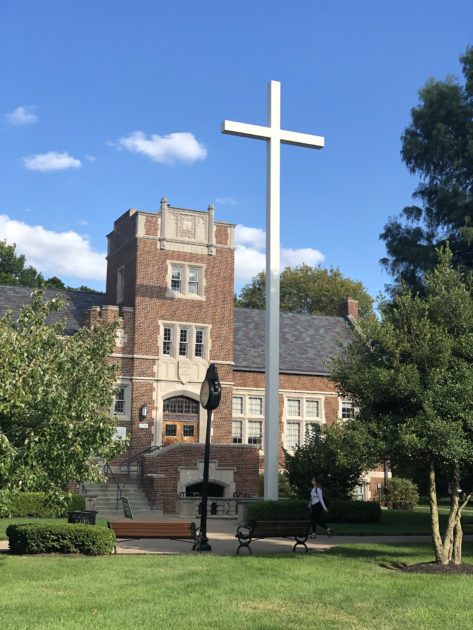It’s a new year, which means it’s time for the first installment of Theology for Everybody! This column started last year as a way to help explain the technical language and insider slang that’s common in religious communities. For those of you new to campus, you might have a lot of questions about the religious landscape, so let me introduce you to a few key concepts to help guide your engagement throughout the year.
First, Capital self-identifies as a university “centered in contemporary Lutheran values.” More than one person has asked me: “What does this mean, precisely?” I’ve got good news and bad news. The bad is that there’s no agreed upon definition. The good is that we’ve made some headway into clarifying what this means for us.

The word Lutheran identifies a particular strain of Christianity, started by monk and university professor Martin Luther in 1517 when he sought to reform the Roman Catholic Church. Eventually, Pope Leo X excommunicated Luther from the Roman Catholic communion. In other words, Leo kicked Luther and his followers out. They became known as Lutherans, and descendants of that movement founded Capital University. And while we do not have a concise definition of contemporary Lutheran values, we can make conjectures based upon university activities.
Consider, for instance, that the university sponsors both an ecumenical Christian movement, Embrace Ministries, as well as the Interfaith Council. Though our Lutheran identity remains an important aspect of our heritage, we do not force that identity upon anyone. Rather, our ministries center on making space for all who call Capital home to find spiritual wellness and vitality. That’s why our Christian ministry is ecumenical, which is a word that means various kinds of Christians in community with one another. It’s also why we support other traditions with dedicated prayer spaces (in Kerns and Saylor-Ackermann) as well as a steering group, the Interfaith Council, which is dedicated to supporting those traditions that don’t have a student group or outside ministry to support their practices. This includes an array of traditions and practices, from Atheism to Hinduism, Buddhism to Secular Humanism, Bahai to Jainism.
This seems to suggest that, at Capital, being centered in contemporary Lutheran values includes a commitment to spiritual wellness alongside academic formation for all people. We believe spirituality as a core component of wellness for everyone and will support your journey to wellness in your particular traditions. You can find that kind of support at Interfaith Meditation Tuesdays at 3 p.m., Capital Worship Wednesdays at 10 a.m., and Candlelight Thursdays at 9:09 p.m., all in Kerns. You can also meet with the Interfaith Council and share your tradition by reaching out to our Convener, Ishan Thapa, at ithapa@capital.edu. I hope I’ll see you in these communities soon!
This column, in future weeks, will be shaped by the interests and questions you all bring to me, so if there’s some confusing spiritual language or religious jargon that you’ve always wanted to ask about, just send me an email to dtucker@capital.edu.
Read a past installment of Pastor Drew’s Theology for Everybody here!


One thought on “Theology for Everybody: Lutheran Introduction”